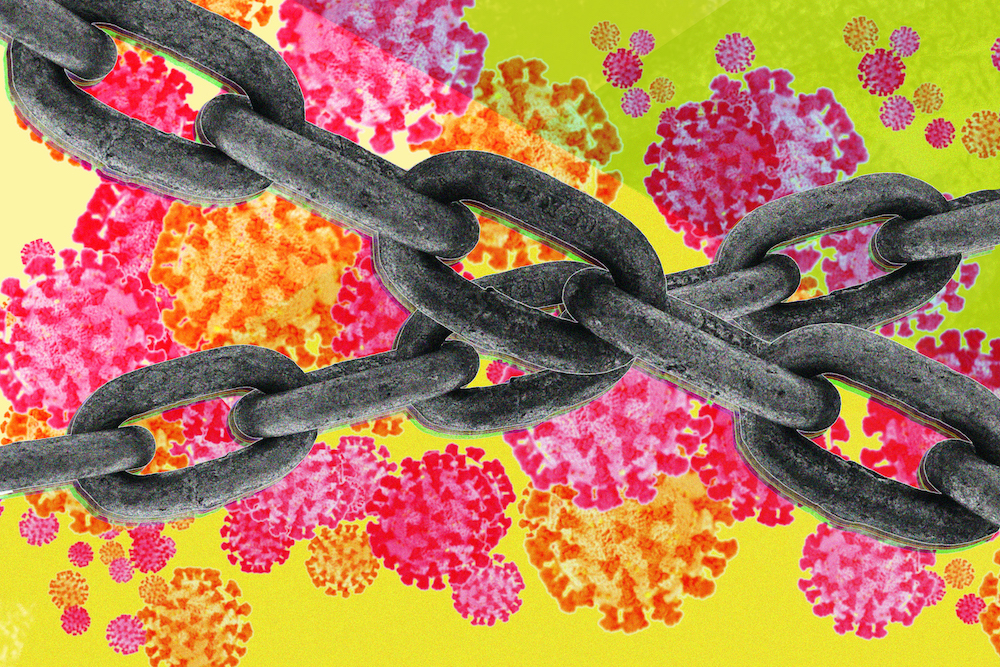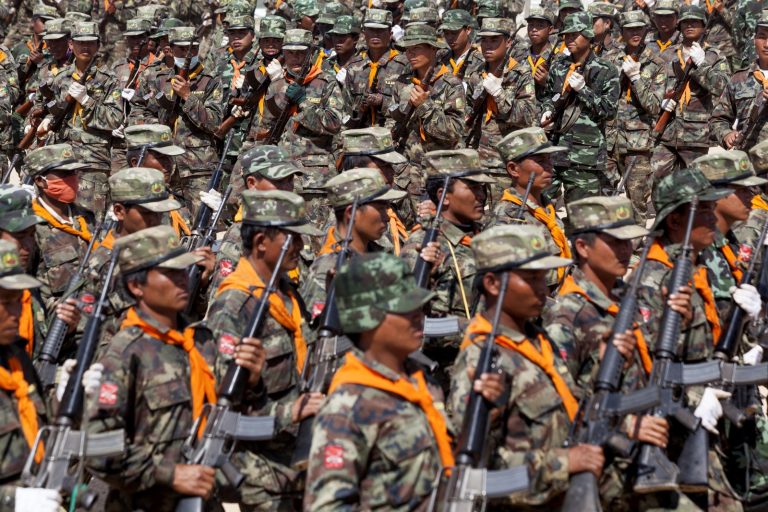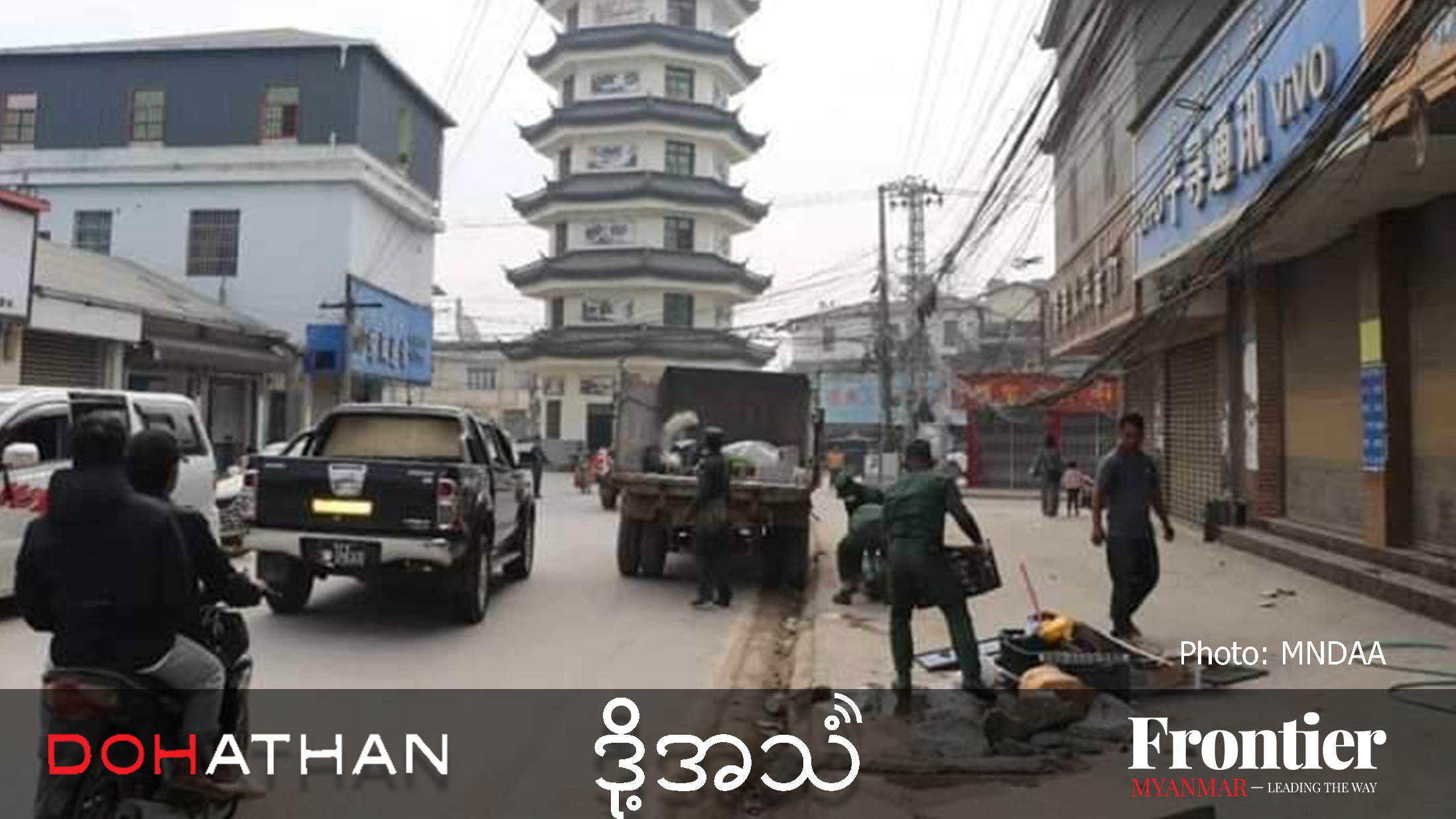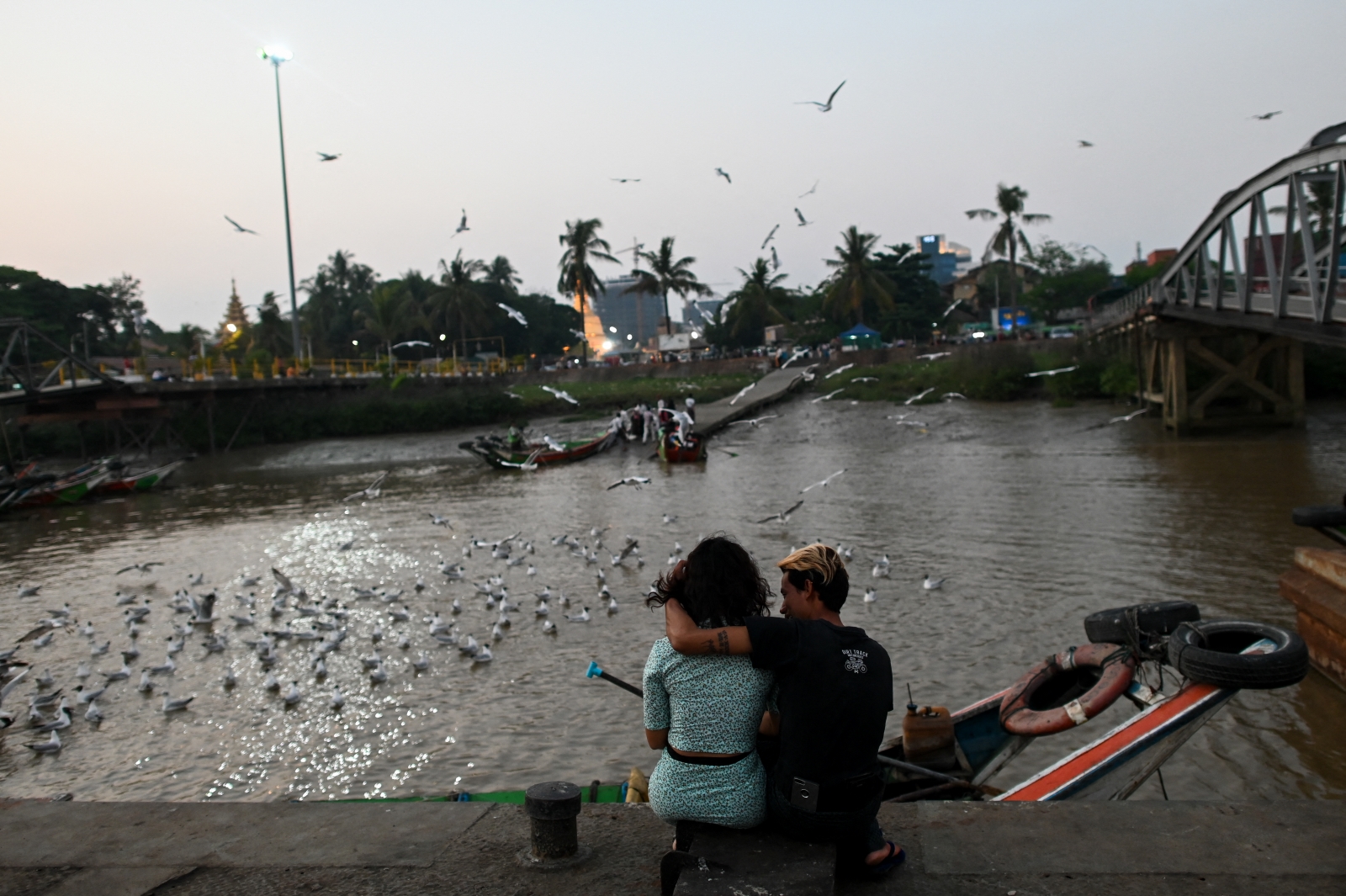Two Frontier reporters have been kept in isolation in eastern Shan State since August 31, despite having tested negative for COVID-19. At home in Yangon, a pregnant wife and a two-month-old baby wonder when they’ll be allowed back.
By YE MON | FRONTIER
Stop me if you’ve heard this one before.
We were visiting an ethnic Enn village in the mountains of Kengtung Township, in eastern Shan State, where the wind blows cold, when I began to feel ill. My photographer and I had come to see what occupied the minds of voters in this remote region near the Thai and Laos borders. We’d spent the day speaking to villagers and a village headman, and meeting with women who wore black shirts and black longyi and chewed leaves that stained their mouths black. We’d brought snacks to donate to the children’s school.
But as the day wore on I noticed my throat growing sore.
I’d been excited. It was my first time to Kengtung and, before we left, I had researched places to visit and people to interview. I couldn’t wait to get out of Yangon and start reporting on the ground about the election.
We flew out from Yangon on August 30 and, the truth is, even on the plane I didn’t feel great. It was easy then to dismiss it as a passing cold, maybe even just air sickness. Leaving the Enn village, however, my sore throat turned into a cough. I still heeded it little mind. On the way back to the hotel I spoke to the driver about what political party offices we might visit the following day.
By the end of the day, however, that most dreaded of symptoms had hit: I’d lost my sense of smell.
The next morning, on August 31, I felt my body getting hot. I quickly decided to cancel all meetings.
I contacted the Frontier office, telling our general manager I may have developed symptoms of COVID-19. Loyal readers may know what happened next. She told me to alert the hotel staff immediately, and then she shut down the Frontier office in Yangon and notified the rest of the team. Because we’d had a staff meeting that Friday, August 28, everyone was told to stay home, self-isolate and inform those they’d been in close contact with.
A local health department staffer arrived and gave us N95 masks, then suggested we take a taxi to the Kengtung General Hospital. I suggested we take our driver, who we’d already been sharing air space with in the car all the previous day.
When the driver arrived, the hotel manager ordered him to take us to the hospital. “This one has COVID-19 symptoms,” he said to the driver, “and as a close contact, you may be admitted too.”
The driver’s eyes widened. A look of terror spread across his face.
The hospital isolation ward was an empty room with eight beds – each divided by a plastic sheet – and a bathroom with two toilets. A nurse gave us a phone number to call if we needed to speak with medical staff. Soon an orderly came and, standing as far away from us as he could, offered us pillows and blankets. Something about the way his hands were shaking made it hard to get comfortable.
An hour later, a team in full-body hazmat suits came to administer swab tests.
We had an early bird dinner at about 3pm and, for some lively postprandial conversation, the hospital’s head doctor, Dr Hla Htay Min, came by at 7pm to ask who we were and what we were doing in Kengtung. We’d gotten a similar line of questioning over the phone earlier that day from the state administrative office and the state health department.
By that evening a Facebook message had circulated among the good people of Kengtung that two Frontier reporters by the names of Ye Mon and Thuya Zaw – it listed our parents’ full names as well – were being hospitalized in town with COVID-19-like symptoms. So much for patient confidentiality. We were the first suspected patients of the second wave in Kengtung.
It wasn’t looking good: I had a fever, coughing and diarrhea. We braced for the worst, but then on September 2 our swab tests came back negative. It was the best news I’ve received in my life. I’m 27 and had been mostly concerned about my family in Yangon.
But it was far from the end of our stay. At 6am the following morning, two nurses in full protective gear came to take our temperatures, blood pressure and oxygen saturation levels, and again at 5pm. This went on for several days, during which my symptoms continued. Although my colleague Thuya Zaw had shown no symptoms during the entire time, they fed us both at least four different kinds of drugs.
On September 5, after a second negative swab test, we were moved to a much more comfortable private room with air conditioning and told we’d need to stay there for 14 days, and maybe undergo another swab test.
We were being fed three near identical meals a day, and each made us miss Yangon more. Days were growing longer, and we were growing more despondent. Depression set in sharply on September 10, when we read the news that all domestic flights had been grounded until the end of the month.
Since September 15, when we were discharged from the hospital, we’ve remained isolated in a 150 square foot hotel room in Kengtung.
My sense of smell returned on September 14, the day before we moved in. I wish it hadn’t. There must be mold in the walls. The air smells like dirt. The isolation ward was more comfortable. On the morning of September 17, the electricity went out and did not come back on that day.
We were hopeful that after the end of September we would be able to return, but domestic flights have been grounded another month, through to the end of October.
Back in Yangon, Thuya Zaw’s wife is six months’ pregnant, and my baby is two months old.
“This is why people are committing suicide in quarantine,” Thuya Zaw said at dinner once. “Now we understand.”
“We are sorry to hear about the airline suspension,” Hla Htay Min told us. “Your x-rays look good, but you must not leave the hotel room until flights are resumed.”
We’re thankful to the hospital staff in Kengtung for treating us so long and for providing an ambulance to take us to this dank hotel. We want to repay them, and have arranged with the CEO to make a small donation to the hospital.
We’re trying to remember that we did not test positive, and that many thousands in Myanmar have. Every day we pray for them and for those who love them.
We miss our families and we want to come home.







